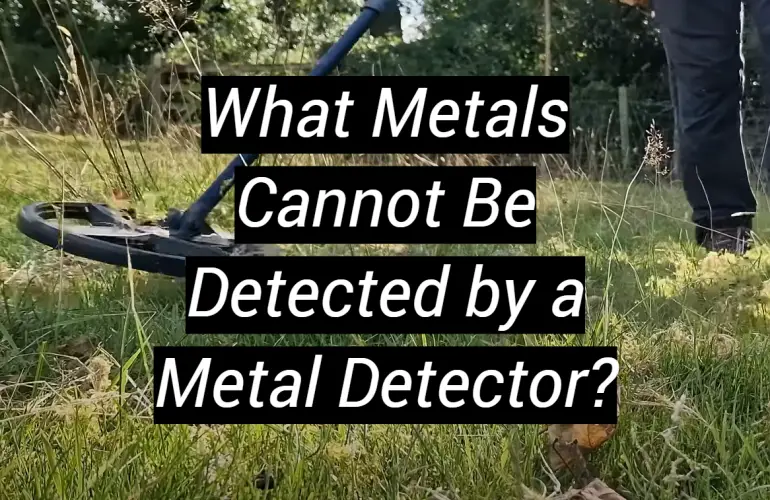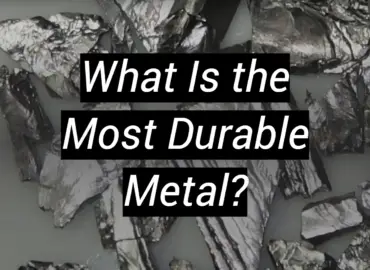Many individuals assume that any kind of metal can be discovered with the help of a metal detector. Did you know that there are certain metals which cannot be discovered with a metal detector? Need to know what metals evade metal detectors? Here’s a breakdown of why certain metals can’t be detected.
What Is A Metal Detector?
A metal detector is an instrument used to detect the presence of metal in a given area. It works by generating an electromagnetic field and then measuring changes in that field caused by metallic substances. Metal detectors are commonly found at airports, schools, and other public places where safety and security can be monitored. They can also be used to locate lost objects or buried treasures.
Metal detectors come in different sizes and shapes, ranging from walk-through portals to hand-held devices. Some are designed for specific purposes such as finding coins, jewelry, or weapons; while others can detect all types of metals including ferrous (iron) and nonferrous (copper, aluminum).
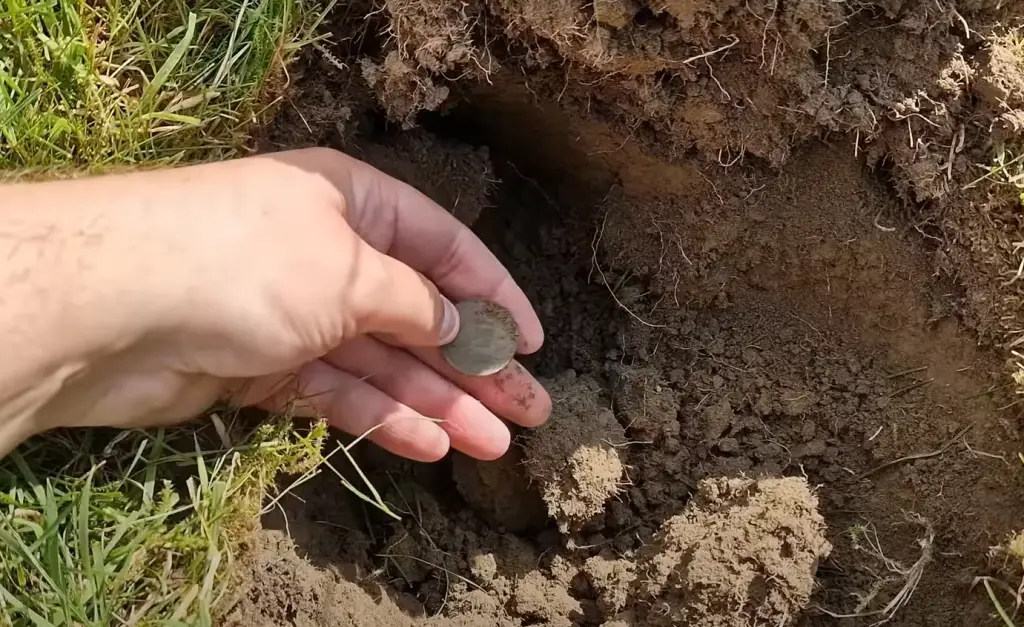
Modern metal detectors also include features like digital readouts, target identification, and even built-in GPS. In addition to their security applications, metal detectors can be used for treasure hunting or prospecting. They are also a great way to educate children about science and technology in an engaging and fun manner.
No matter what your purpose is, a metal detector can be a great tool for finding objects that might otherwise go unnoticed. Whether you’re looking for lost jewelry or hidden treasures, a metal detector can help you search with greater ease and accuracy. [1]
Metals That Can’t Be Detected Magnetically
Some metals are not magnetic and don’t interact with a magnet. These include aluminum, lead, copper, zinc, brass and tin. They can’t be detected using magnetic fields because they aren’t attracted to magnets or don’t respond to them in any way. If you’re looking for these types of metals, you’ll need to use other methods such as metal detectors or X-ray machines instead of relying on the effects of magnetism.
For example, brass contains copper and zinc but no iron so it won’t react with a magnet either. Understanding the properties of different metals can help you determine which detection methods are best for your needs.Despite their lack of reaction to magnets, these non-magnetic metals still have uses in many industries such as construction and manufacturing. Copper wiring is used to conduct electricity, lead is used for radiation shielding, and aluminum is often found in aircrafts due to its lightweight yet strong structure. Knowing how these metals interact with other materials and how they can be detected can help you maximize their potential and create better products. [2]
Metals That Metal Detectors Can Easily Find
Easily locatable metals that are typically discovered with metal detectors include iron, nickel, copper, aluminum, cobalt and zinc. These are the most commonly detected metals and are generally easier for a detector to find than other more obscure metals.

Iron is the most common material used in coins and jewelry, so it’s no surprise it is easily found by metal detectors.
Nickel is also often used in coins and jewelry, as well as many everyday items like buttons and zippers.
Copper is an abundant mineral usually found in electrical wiring and plumbing fixtures.
Aluminum is widely used in architecture and construction due to its lightweight but strong properties; it is also easily identified by metal detectors.
Cobalt can be harder to detect but still comes up quite frequently on a standard metal detector.
Finally, zinc is an important element in construction and can also be found with metal detectors.
Metal detectors are invaluable tools when searching for lost or hidden objects made out of metal.
With the right model, you’ll always have a good chance of easily finding metals like iron, nickel, copper, aluminum, cobalt and zinc. [3]
Using The Discrimination Feature
Using metal detectors with a discrimination feature can help you to detect certain metals and avoid others. Discrimination is the ability for a metal detector to distinguish between different types of metals. This is often used by prospectors and hobbyists to avoid finding unwanted targets, such as pieces of trash or other debris that may contain no value. By using the discrimination feature, you can set the metal detector’s sensitivity level for particular types of metals, so that it will ignore them and not register them on the readout.
Metals such as stainless steel, aluminum foil, and other non-ferrous items cannot be detected by most standard metal detectors because they are composed of alloys which contain very little amount of ferromagnetic material. Additionally, some gold jewelry pieces may be too small or have such a low metal content that they will not be detected by most detectors. Coins made out of copper, brass and bronze are also difficult to detect as these metals are non-ferrous.
For the best detection results, it is important to know what type of target you are looking for and which metals can be detected with a particular metal detector model. This knowledge helps ensure that the settings on your metal detector are adjusted properly in order to maximize the detection of valuable targets while avoiding debris that may give false readings.
Does A Metal Detector Detect All Metals?
No, metal detectors are not able to detect all metals. In fact, some metals cannot be detected by a metal detector at all. These include non-magnetic metals such as aluminum and brass, as well as stainless steel and other ferrous alloy steels. The ability of a metal detector to find objects depends on the type of material being searched for, its size and shape, and how close it is to the coil or search head that emits the signal.
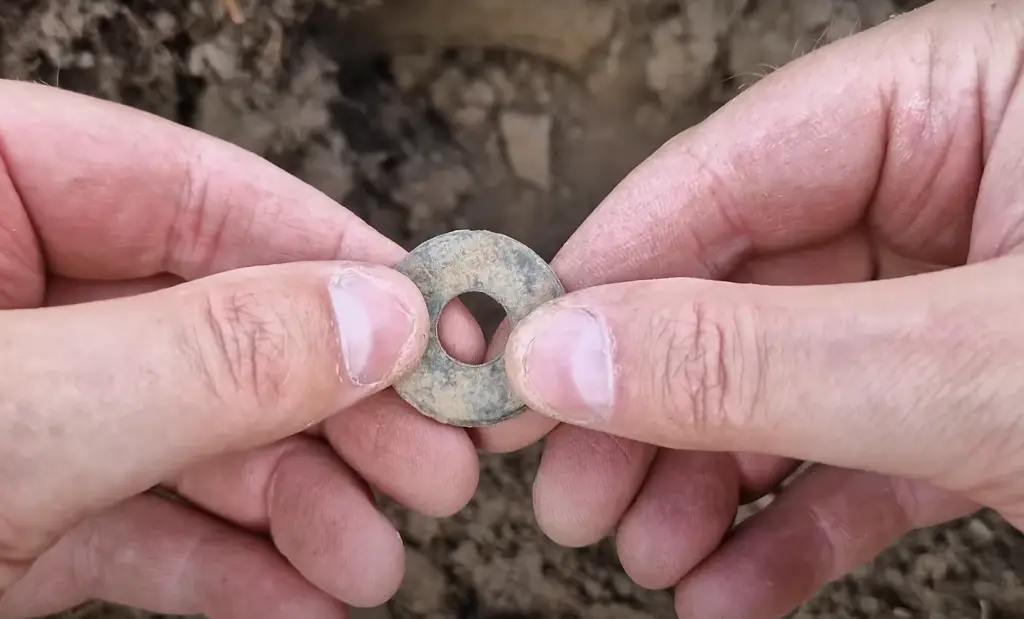
As such, larger or thicker pieces of metal which are buried deeper will usually be harder to detect than smaller or thinner pieces that are nearer to the surface. Additionally, certain types of soil can interfere with the effectiveness of a metal detector if it contains high levels of mineral deposits like iron and sulfur.
It is important to remember that metal detectors cannot detect all types of metals, so it is essential to adjust the settings according to the type of object being searched for before beginning a search. [4]
Do Diamonds Set Off A Metal Detector?
No, diamonds do not set off a metal detector. Diamonds are composed of carbon and are non-metallic, so they will not be detected by a metal detector. The same goes for other precious stones like rubies and sapphires. They may contain trace amounts of metals that might trigger the sensitivity settings on some machines, but overall, these gemstones are undetectable by a standard hand-held or wand-type metal detector. To detect these types of stones, specialized diamond detectors must be used instead. These diamond detectors use various methods such as X-ray fluorescence scanning or near-infrared light spectroscopy to identify gemstones based on their optical properties.
It is important to note that coins, jewelry and other metallic items that contain a high concentration of precious stones will set off a metal detector. That’s because these objects usually have a base made out of metal (e.g. gold or silver) and the diamonds are embedded in this base material, thus making them detectable by the machine.
Will Silver Set Off A Metal Detector?
In general, silver is detectable by a metal detector. However, the sensitivity of the device will determine whether you are able to detect it or not. Depending on the type of metal detector and its settings, smaller or thinner pieces of silver may go undetected. It is also possible that the specific environmental conditions around the area where you are using your metal detector could affect its ability to detect silver.

The size and shape of an object can also influence whether it can be detected by a metal detector. For example, coins made out of silver are usually easier to detect than jewelry made out of thin wires or small chains due to their larger surface area and mass. Additionally, highly magnetic metals such as iron will be more likely to set off a metal detector than other metals. [5]
Will Graphite Set Off A Metal Detector?
With certainty, non-metallic materials such as graphite, plastic, ceramics and wood will not activate a metal detector. Metal detectors are specifically crafted to detect metal objects constructed from particular materials, and graphite does not fall into this category.
Some specialized metal detectors may be able to detect the presence of graphite if it is in large enough concentrations, but these types of detectors are not commonly used and would likely require additional testing to confirm their accuracy. In general, it is safe to assume that standard metal detectors will not be able to detect the presence of graphite.
What Industries Use Metal Detector Inspection?
Metal detectors are used in a variety of industries to ensure product safety and quality. The food industry is the most common user, employing metal detectors to guard against contaminated products. Other industries may include medical device manufacturers, electronics production, chemical and pharmaceutical companies, airport security, military applications and archaeological exploration. Metal detection technology can also be used for non-destructive testing in engineering construction projects as well as to detect hidden metals in historic buildings or shipwrecks. In all cases, these tools help protect consumers from dangerous products or materials that could cause harm if ingested or otherwise present a health hazard.
Different types of metal detector inspections are designed for different purposes based on the needs of each industry. For example, an x-ray machine may be used to detect lead-based materials in food or drugs, while a magnetic field detector may be used to check for ferrous metals in electronics components. A pulse induction metal detector is most often employed when looking for small pieces of metal such as coins or jewelry and can even penetrate the soil and sand.
Can I Improve the Metal Detecting Power of My Detector?
Metal detectors measure electrical conductivity to detect the presence of metal, and therefore certain metals may not be detected by a metal detector. Metals such as aluminum and copper are non-ferrous and have very low electrical conductivity, making them difficult or impossible for many metal detectors to sense. Other metals such as stainless steel and titanium have high levels of electrical resistivity, meaning that they can deflect signals sent out by the metal detector, causing it to miss detecting them.
Fortunately, there are ways you can improve the detection power of your metal detector so that it is better able to detect all types of metallic objects. Adjusting the coil size and shape on your detector can help increase its depth penetration capabilities while increasing sensitivity will help detect small objects at greater depths. If you are trying to detect more non-ferrous metals, you may need to switch out the coil for a larger one that is particularly suited for these types of metals.
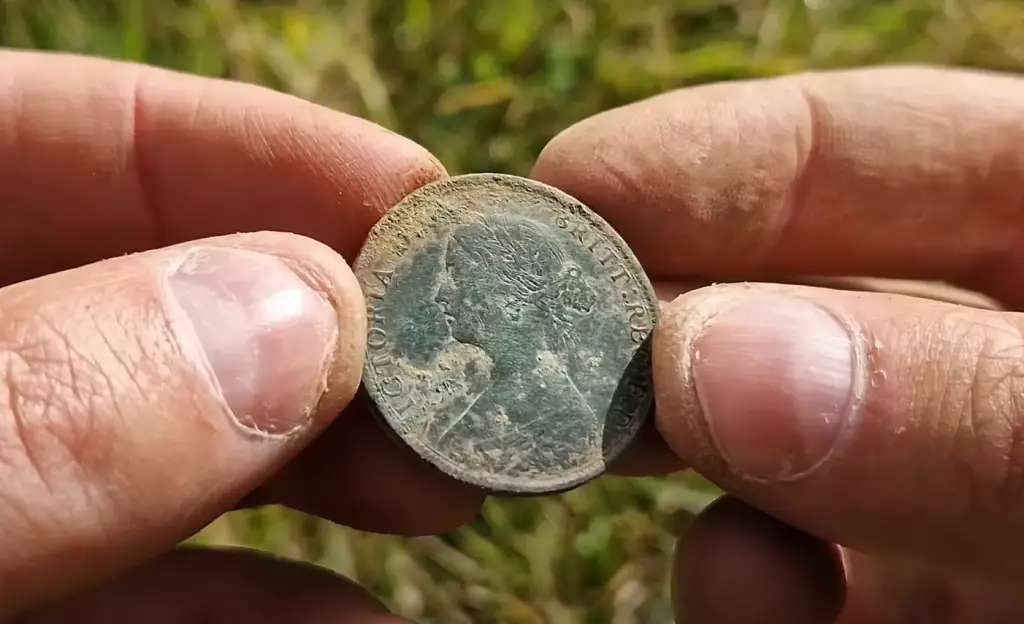
You can also tweak settings such as ground balance and discrimination level to further refine your metal detector’s performance. With the right adjustments and a bit of patience, it’s definitely possible to improve your metal detector’s power so that it can detect all sorts of metallic objects buried beneath the surface. [6]
Why Is Metal Detection Important in the Food Industry?
Metal detection is an important part of the food industry to ensure food safety. Metal detectors are used to detect metal contaminants that may have been accidentally introduced into the production process. Many metals, such as iron, aluminum and copper, can be detected by a metal detector, however, certain metals cannot be detected.
This means that contamination with these materials goes unnoticed without additional testing methods.In addition to detecting contaminated products before they reach the market, metal detection also helps reduce production costs associated with recalls and legal fees due to contaminated product liability claims. The presence of even small amounts of metallic contaminants can damage expensive production equipment, resulting in downtime and costly repairs. By detecting such contaminants before they can cause any damage, manufacturers save substantial amounts of money.
FAQ
Do metal detectors detect every metal?
No, metal detectors cannot detect all metals. Some of the metals that cannot be detected by a metal detector include aluminum, copper and brass. Aluminum is not detectable because it does not create enough electrical conductivity to produce a signal for the detector. Copper and brass are also non-ferrous metals that do not respond to magnetic fields in the same way as ferrous (iron-based) metals such as steel or iron. As a result, these materials often remain undetected by most standard metal detectors. Additionally, some gold jewelry may contain other elements like silver or nickel which can prevent it from being detected by certain types of detectors as well.
Are there any other materials that cannot be detected?
Yes, there are several other materials that cannot be detected by a metal detector. These include items made of plastic, wood, glass and other non-metallic materials. Additionally, certain types of rocks and minerals can also interfere with signals from a metal detector and cause false readings. This is why it is important to consider the environment you will be searching in before using a metal detector.
Is there any way to detect metals that are not detectable by a metal detector?
Yes, some metals may not be detectable by a standard metal detector but can still be found using other methods such as ground penetrating radar (GPR). GPR uses radio waves to identify disturbances in the ground which could indicate the presence of buried objects or features.
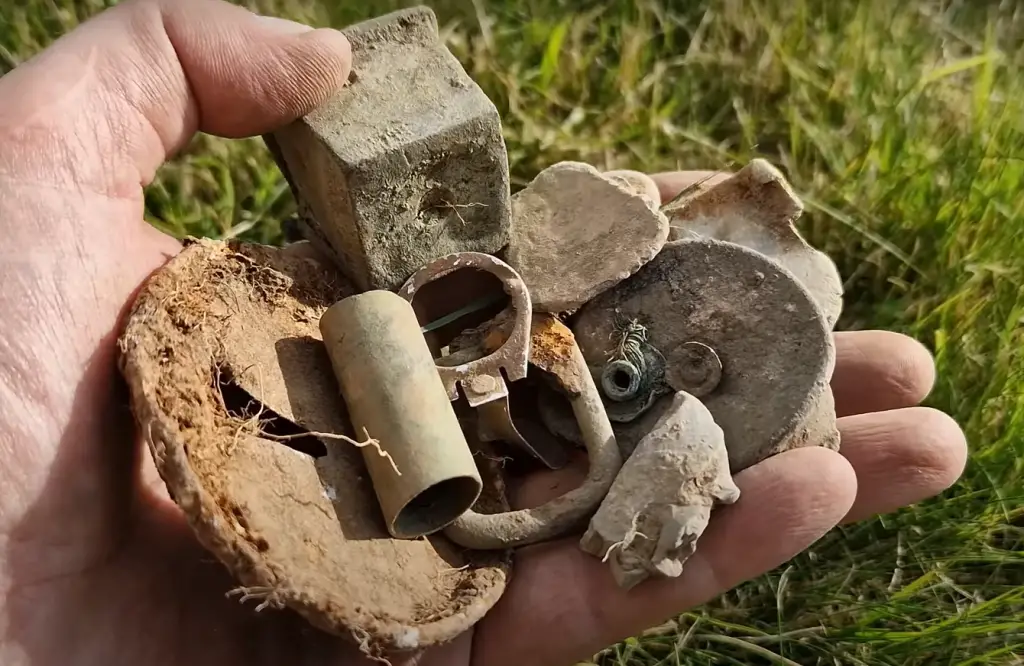
Additionally, specific types of electromagnetic methods such as magnetometry may also be used to detect certain metals. However, these methods tend to be more expensive and require specialized equipment.
Which is the most difficult metal detected by a metal detector sensor?
Non-ferrous metals such as aluminum, brass, copper and stainless steel are usually the most difficult to detect with a metal detector. Other non-metallic materials like plastic, wood and glass can also interfere with the sensitivity of a metal detector. Some alloys that are made up of different metallic elements may also be challenging to detect because their composition is unknown.
Are all metals detectable?
Unfortunately, not all metals can be detected by a metal detector. Metals such as aluminum, copper, lead and tin are undetectable by most detectors because they have low conductivity and magnetic permeability. Some alloys may also present difficulties for certain types of metal detectors which rely on these properties to detect metals. It is important to understand the properties of the material you are attempting to detect in order to ensure a successful detection process. With careful consideration and understanding of the materials being used, it is possible to use a variety of methods to accurately detect all kinds of metals.
What is the greatest weakness of metal detectors?
The greatest weakness of metal detectors is their sensitivity to other materials. Metal detectors detect all metals, but they can also be triggered by other objects such as rocks, dirt, coins and even certain types of plants. This can cause false alarms and make it difficult to accurately locate the target item. In addition, some metals like stainless steel are particularly difficult to detect due to their low conductivity and magnetic permeability. To help reduce false alarms it is important to use a detector that has good filtering capabilities so that only the specific type of metal you are searching for is detected.
When should a metal detector not be used?
Metal detectors should not be used in locations where there could be potential hazards from buried or hidden items such as live wires or unexploded ordnance. In addition, metal detectors should not be used in areas that may contain large amounts of radio frequency interference like airports or military installations as this can interfere with the accuracy of the detector’s readings. Furthermore, metal detectors are not suitable for use on some types of archaeological sites and should only be used by trained archaeologists who understand how to safely operate them and interpret any results they obtain.
Useful Video:How To Metal Detect || The Complete Beginners Guide || TOP TIPS Metal Detecting || Become A PRO
Conclusion
In conclusion, while metal detectors are a great way to locate potentially hazardous metals in the environment, it is important to note that there are a few types of metals that cannot be detected. These include non-ferrous metals such as gold, silver, aluminum and copper; stainless steel alloys; and certain rare earth elements like neodymium. Additionally, some metal objects may be too deeply buried or contain a high level of mineral content that can interfere with the metal detector’s signal. By understanding which metals cannot be detected by metal detectors, one can better determine when other methods must be employed for metal detection. This can help ensure safety and accuracy when searching for specific materials in the environment.
References:
- https://www.mgsrefining.com/blog/2021/10/13/what-metals-cannot-be-detected-by-a-metal-detector/
- https://metaldetectingtips.com/what-metals-cannot-be-detected-by-metal-detector/
- https://www.tdipacksys.com/blog/what-metals-cannot-be-detected-by-a-food-metal-detector/
- https://orientdetectors.com/elements-can-not-be-detected-by-metal-detectors/
- https://diggersanddetectors.com/what-metals-cannot-be-detected-by-a-metal-detector/
- https://treasureseekr.com/what-metals-do-metal-detectors-have-trouble-detecting/

